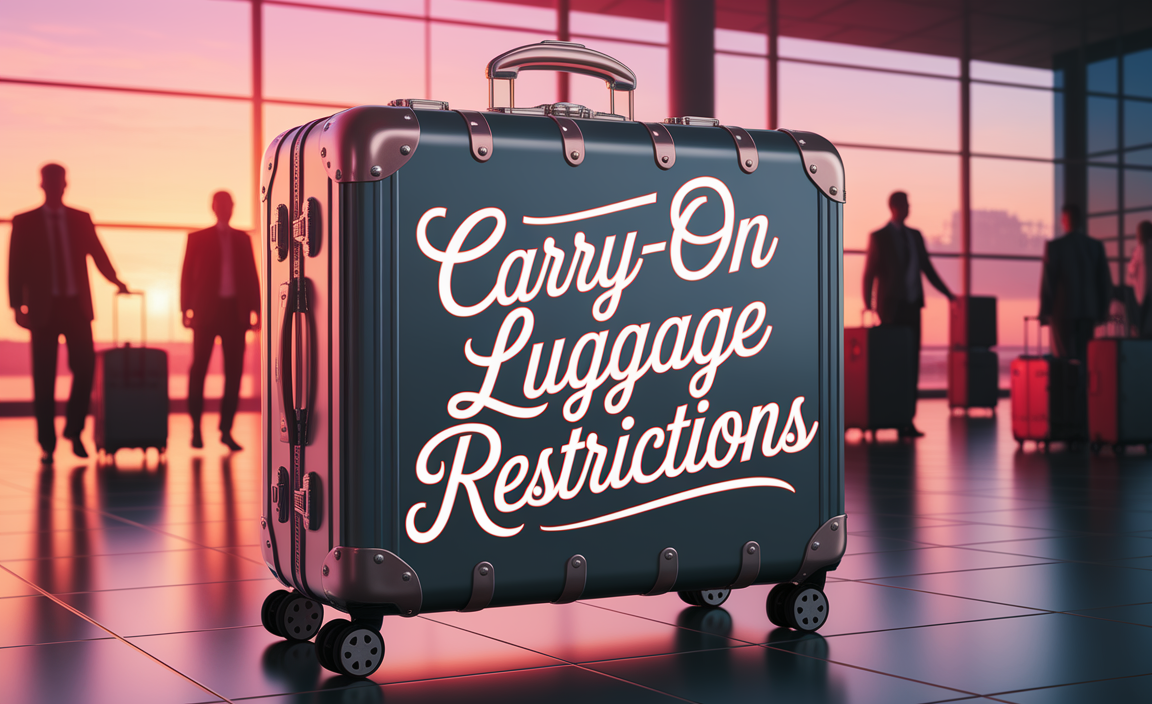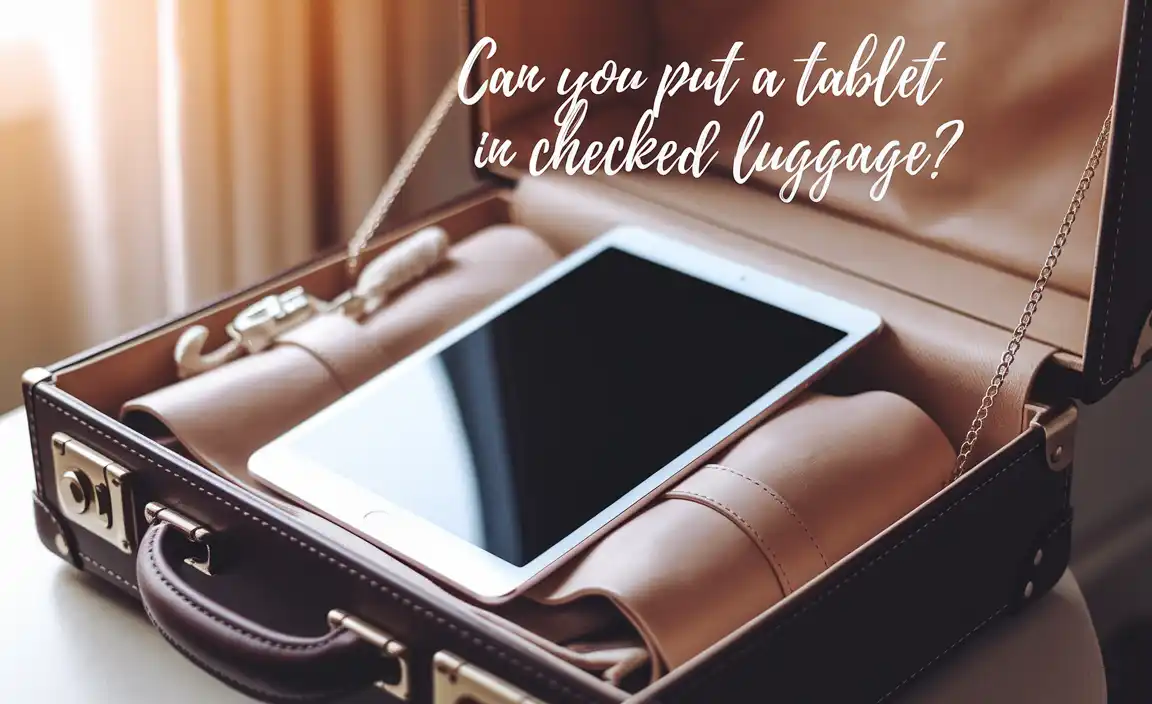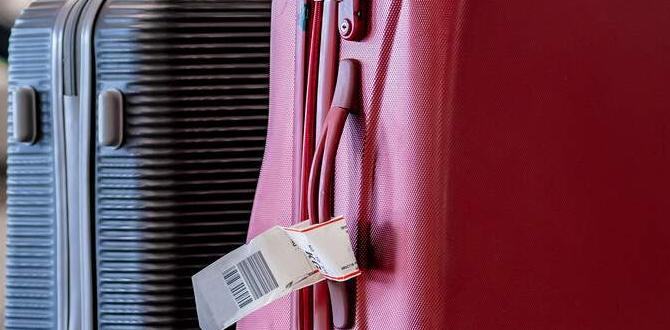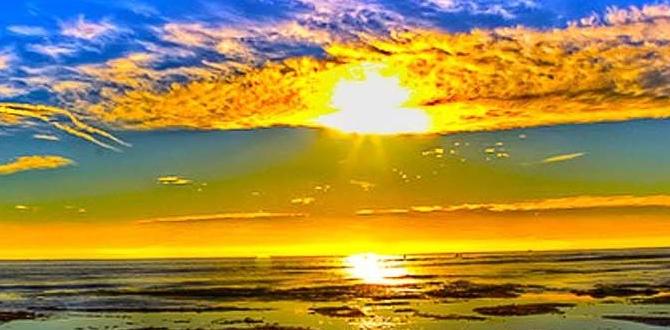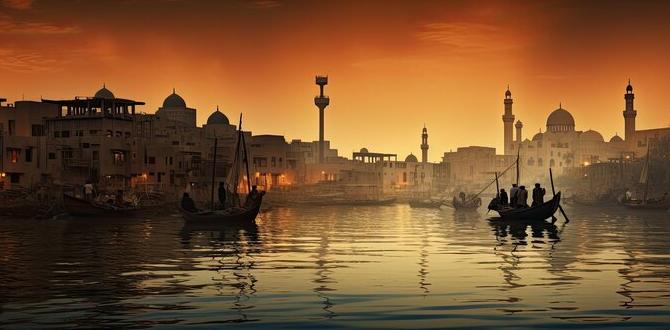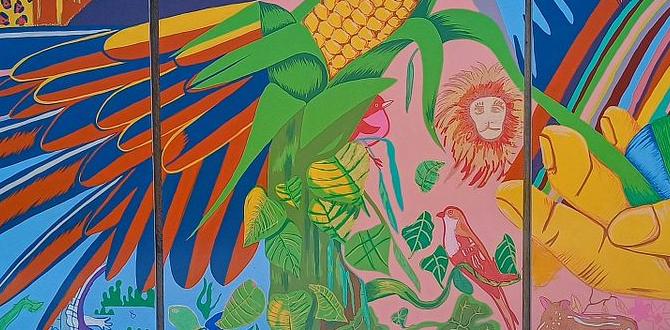Plan your Bahrain shoulder season trip with ease! This guide offers essential tips for comfortable travel during the pleasant spring and autumn months, focusing on budget-friendly options, cooler weather activities, and packing essentials for a stress-free adventure.
Traveling to Bahrain can be a magical experience, but finding the perfect time to visit often feels like a puzzle. You want sunshine without the scorching heat, fewer crowds, and perhaps even a better deal on flights and accommodation. Many travelers find themselves wondering about the “sweet spot” for exploring this vibrant island nation. If you’re dreaming of Bahrain’s cultural gems and beautiful coastlines but want to avoid the peak tourist rush and intense summer heat, then focusing on its shoulder seasons is your best bet. This guide will walk you through everything you need to know to plan a wonderful trip during these ideal months, making your journey smooth and enjoyable.
Essential Guide to Bahrain Shoulder Season Travel
Bahrain, a small island nation nestled in the Arabian Gulf, offers a unique blend of ancient history, modern attractions, and warm hospitality. While its popularity surges during the cooler winter months, the shoulder seasons – specifically spring (March to May) and autumn (September to November) – present an incredibly appealing alternative. These periods offer a delightful balance of pleasant weather, fewer tourists, and often more attractive prices, making them perfect for a more relaxed and budget-conscious exploration.
Imagine wandering through the bustling souqs, exploring ancient forts, and relaxing on pristine beaches with comfortable temperatures. This guide is designed to equip you with all the knowledge needed to plan an unforgettable Bahrain trip during these advantageous times. We’ll cover the best times to go within these seasons, what to expect in terms of weather, suggested itineraries, packing essentials, and tips for making the most of your visit, ensuring a stress-free and enriching experience.
Why Choose Bahrain’s Shoulder Season?
Deciding when to travel can significantly impact your overall experience and budget. Bahrain’s shoulder season offers a compelling case for smart travelers.
Pleasant Weather: The most significant advantage is the weather. You can avoid the extreme heat of summer and the cooler, sometimes rainy, conditions of winter. The spring and autumn months provide a comfortable climate ideal for outdoor activities.
Fewer Crowds: While Bahrain is never overwhelmingly crowded, the shoulder seasons offer a more tranquil experience. This means shorter queues, more personal interactions with locals, and a more relaxed pace for sightseeing and exploring.
Better Value: Flights and accommodation often come at lower prices during these periods compared to the peak winter season. This allows your travel budget to stretch further, enabling you to enjoy more activities or opt for slightly upgraded comforts.
Diverse Activities: From exploring historical sites to enjoying water sports and cultural festivals, the shoulder season allows you to comfortably engage in a wide array of activities without being hampered by extreme temperatures or large crowds.
Understanding Bahrain’s Climate in Shoulder Seasons
Bahrain has a desert climate, characterized by hot summers and mild winters. The shoulder seasons offer a delightful transition, providing a more temperate environment.
Spring (March – May)
March: Expect temperatures to gradually rise from comfortably warm to hot. Average highs are around 27-30°C (80-86°F), with evenings remaining pleasant. Humidity is generally low.
April: This is often considered one of the most ideal months. Temperatures hover around 30-33°C (86-92°F) during the day, cooling down nicely in the evenings. There’s a chance of occasional light rain showers.
May: Temperatures start climbing more noticeably, with daytime highs reaching 35-38°C (95-100°F). Humidity can begin to increase, making it feel warmer. It’s still manageable for early morning or late afternoon activities.
Autumn (September – November)
September: Marking the end of summer’s intense heat, September sees temperatures slowly begin to decrease. Daytime highs are typically around 36-39°C (97-102°F), but the humidity drops significantly, making it feel more bearable than summer.
October: This is another prime month. The heat subsides considerably, with average highs around 33-36°C (92-97°F). Evenings are particularly pleasant, perfect for dining outdoors or walking around.
November: Temperatures continue to cool, with daytime highs in the comfortable range of 28-32°C (82-90°F). Evenings can be cool enough for a light jacket, especially by the coast. This month can sometimes bring brief, light rain.
Planning Your Bahrain Shoulder Season Itinerary
A well-planned itinerary ensures you experience the best of Bahrain while respecting the weather and any potential crowd levels. Here’s a suggested approach, adaptable to your interests.
Sample 7-Day Itinerary: Exploring Bahrain’s Highlights
This itinerary balances historical exploration, cultural immersion, and relaxation, perfect for a 7-day trip during the spring or autumn.
Day 1: Arrival in Manama & Old City Charm
Arrive at Bahrain International Airport (BAH), transfer to your hotel.
After settling in, head to the old Manama souq for a sensory overload of spices, textiles, and local handicrafts.
Explore the historic Al-Fateh Grand Mosque, one of the largest in the world. Remember to dress modestly.
Enjoy dinner at a local restaurant, sampling traditional Bahraini cuisine.
Day 2: Ancient History and Royal Tombs
Morning visit to the Bahrain National Museum to understand the island’s rich history.
Explore the Qal’at al-Bahrain (Bahrain Fort), a UNESCO World Heritage site offering stunning views.
Visit the ancient burial mounds of Saar and A’ali, remnants of Dilmun civilization.
Evening: Relax or explore more of Manama’s modern districts.
Day 3: Pearls, Oil, and Island Views
Discover Bahrain’s pearling heritage at the newly opened Pearling Path, another UNESCO World Heritage site in Muharraq.
Visit the Bahrain Petroleum Company (BAPCO) viewing platform for insight into the island’s oil history.
Spend the afternoon at the Tree of Life, an enigmatic desert anomaly.
Enjoy sunset views over the Arabian Gulf.
Day 4: Modern Manama and Artistic Flair
Explore the modern heart of Manama, including the World Trade Center with its wind turbines.
Visit the contemporary Art Bahrain gallery or explore local art studios.
Shopping: Explore modern malls like The Avenues Bahrain or City Centre Bahrain for international brands and entertainment.
Evening: Enjoy a meal in the vibrant Adliya district, known for its diverse restaurants and art galleries.
Day 5: Coastal Relaxation and Marine Life
Day trip to Jarada Island (accessible by boat, weather permitting) for pristine beaches and snorkeling.
Alternatively, enjoy water sports or relax at Amwaj Islands, known for its lagoons and resorts.
Consider a dolphin watching tour if available and tide conditions are favorable.
Evening: Enjoy seafood at a coastal restaurant.
Day 6: Cultural Immersion and Local Life
Visit the traditional Al Jasra Handcrafts Centre to see local artisans at work.
Explore Salmaniya Medical Complex, and if comfortable, attend a public lecture or event at the Isa Cultural Centre to learn more about Islamic culture and heritage.
Wander through a local neighborhood to observe daily life.
Farewell dinner at a restaurant of your choice, perhaps revisiting a favorite spot.
Day 7: Departure
Enjoy a final Bahraini breakfast.
Depending on your flight schedule, do some last-minute souvenir shopping or revisit a favorite spot.
Depart from Bahrain International Airport (BAH).
Customizing Your Trip
History Buffs: Dedicate more time to the UNESCO sites like the Bahrain Fort and Pearling Path, and explore the National Museum thoroughly.
Adventure Seekers: Opt for more water sports in Amwaj Islands or explore desert areas with a local guide.
Relaxation Focus: Spend more days at beach resorts or enjoy leisurely strolls through souqs and peaceful gardens.
Families: Consider KidZania at The Avenues Bahrain, a water park (seasonal), or interactive exhibits at the National Museum. For families managing travel with young children, ensuring easy access to facilities and comfort items is key.
Packing Essentials for Bahrain’s Shoulder Season
Packing smartly is crucial for comfort and convenience, especially when traveling with specific needs like those requiring adult or child diapers. Focus on lightweight, breathable items and versatile clothing.
Clothing
Lightweight Tops: T-shirts, linen shirts, and breathable blouses made from cotton or moisture-wicking fabrics.
Trousers/Skirts: Long, flowing skirts, linen trousers, or light cotton pants.
Modest Attire: For visiting religious sites like mosques, pack long-sleeved shirts, long pants, or skirts that cover the knees, and a headscarf for women. These are also good for sensitive skin that needs protection from the sun.
Swimwear: For the beach and hotel pools.
Light Jacket or Cardigan: Essential for cooler evenings, especially in November, or for air-conditioned indoor spaces.
Comfortable Walking Shoes: Sneakers or sturdy sandals are ideal for exploring.
Sandals/Flip-flops: For relaxing or casual outings.
Health and Comfort Items
Sunscreen: High SPF is a must, even during milder shoulder season days.
Hat: A wide-brimmed hat or cap for sun protection.
Sunglasses: To protect your eyes from the glare.
Insect Repellent: Especially if you plan to be near water or out in the evenings.
Personal Care: Standard toiletries, plus any specific items you might need. For travelers who require them, bringing a sufficient supply of adult diapers or child diapers is paramount for maintaining comfort and confidence throughout your trip. Brands offering discreet, highly absorbent options can make long flights, excursions, and daily activities much more manageable. Planning ahead ensures you don’t face unexpected needs or shortages.
Hand Sanitizer: Always useful when on the go.
Small First-Aid Kit: Band-aids, pain relievers, antiseptic wipes.
Travel Accessories
Universal Travel Adapter: Bahrain uses Type G (UK-style) sockets.
Portable Power Bank: To keep your devices charged.
Reusable Water Bottle: Stay hydrated and reduce plastic waste. Many hotels offer filtered water dispensers.
Lightweight Backpack or Day Bag: For carrying essentials during daily excursions.
Camera: To capture memories.
Book or E-reader: For downtime. Traveling with essential comfort items, such as adult diapers designed for extended wear or child diapers for active toddlers, alongside your regular travel gear, ensures a stress-free experience. Look for breathable, reliable options like those from trusted manufacturers that prioritize comfort and discretion.
Navigating Bahrain: Transportation and Tips
Getting around Bahrain is relatively straightforward, and the shoulder season offers pleasant conditions for travel.
Transportation Options
Taxis: Readily available and a convenient option. Agree on the fare beforehand if not using a metered taxi or app-based service. Apps like Careem and Uber operate in Bahrain and are often preferred.
Rental Cars: Many international and local car rental agencies are available at the airport and in Manama. This offers the most flexibility, especially if you plan to explore beyond the capital extensively. Remember to familiarize yourself with local driving laws and road conditions.
Public Buses: Bahrain has a public bus network, offering a very affordable way to get around. Routes are extensive, covering most major areas. This can be a great way to experience local life, but schedules might require more planning.
Ride-Sharing Apps: Uber and Careem are widely used and provide a reliable and often cost-effective way to travel, especially within Manama and its suburbs.
Essential Travel Tips
Dress Code: While Bahrain is a relatively liberal country, it’s important to dress respectfully, especially outside of tourist resorts and when visiting religious sites. Aim for modest clothing that covers shoulders and knees.
Hydration: Drink plenty of water, even when the weather feels milder. Carry a reusable water bottle and refill it often.
Sun Protection: Always wear sunscreen, a hat, and sunglasses during daylight hours.
Respect Local Customs: Be mindful of Islamic traditions, particularly during the holy month of Ramadan. Avoid eating, drinking, or smoking in public during fasting hours if you are visiting during Ramadan.
Currency: The Bahraini Dinar (BHD) is the local currency. Major credit cards are widely accepted in hotels, restaurants, and larger shops. It’s good to have some cash for souvenirs and smaller purchases in souqs.
Language: Arabic is the official language, but English is widely spoken and understood in tourist areas and business circles.
Connectivity: Purchase a local SIM card for affordable data access, or check your provider’s international roaming plans. Wi-Fi is generally available in hotels and cafes.
Travel Insurance: Always a good idea for any trip, covering potential medical emergencies or trip interruptions.
Budgeting for Your Bahrain Shoulder Season Trip
Traveling during the shoulder season can be significantly more budget-friendly, but a little planning goes a long way.
Estimated Costs (per person, per week, excluding flights):
| Category | Budget Traveler (USD) | Mid-Range Traveler (USD) |
| :—————- | :——————– | :———————– |
| Accommodation | $250 – $400 | $500 – $900 |
| Food & Drink | $150 – $250 | $250 – $400 |
| Activities & Tours| $100 – $200 | $200 – $350 |
| Local Transport | $50 – $100 | $100 – $150 |
| Total | $550 – $950 | $1050 – $1800 |
Note: These are approximate figures and can vary based on travel style, specific choices, and current exchange rates. Accommodation prices can fluctuate. Booking in advance often secures better rates.
Saving Money Tips
Book Flights and Accommodation Early: Especially if you find good deals, lock them in.
Eat Like a Local: Venture beyond tourist-trap restaurants. Explore local eateries and cafes for authentic and affordable meals. Bahraini roadside shawarma and local diners offer delicious and inexpensive options.
Utilize Public Transport: The bus network is very economical for getting around.
Free Activities: Enjoy walking around souqs, exploring public beaches, and visiting many historical sites that have minimal entry fees. Museums often have reasonable entrance charges.
Travel in a Group: Sharing costs for taxis or car rentals can reduce individual expenses.
Consider Package Deals: Sometimes, bundling flights and hotels can offer savings.
Frequently Asked Questions (FAQ)
Q1: Is Bahrain safe for solo travelers?
Yes, Bahrain is generally considered a safe destination for solo travelers. Like anywhere, it’s wise to be aware of your surroundings, especially at night, but incidents of crime against tourists are rare.
Q2: What are the main benefits of visiting Bahrain in spring versus autumn?
Spring (March-May) generally offers warmer temperatures earlier in the season and a gradual transition to heat. Autumn (September-November) starts with lingering warmth from summer but quickly cools into very pleasant, mild weather with cooler evenings. Both are good, but autumn often has slightly more consistently comfortable daytime temperatures before winter truly sets in.
Q3: Do I need to wear an abaya or hijab in Bahrain?
While not mandatory for tourists in public places outside of religious sites, modest dress is highly recommended. For women, this means covering shoulders and knees. If you plan to enter a mosque like the Al-Fateh Grand Mosque, you will need to wear an abaya (a long, loose-fitting robe) and a headscarf, which are often provided or can be rented there.
Q4: Are adult diapers or child diapers readily available for purchase in Bahrain?
Yes, adult and child diapers are available for purchase in pharmacies and larger supermarkets throughout Bahrain. However, if you have specific brand preferences or require specialized products, it is always best to bring a sufficient supply from home to ensure comfort and to avoid any potential shortages or product unavailability.
Q5: What are the visa requirements for Bahrain?
Visa requirements vary by nationality. Many visitors can obtain a visa on arrival, while others may need to apply in advance. It’s crucial to check the official website of the Bahrain Directorate of Nationality, Passports & Residence Affairs well before your travel dates for the most up-to-date information specific to your country.
Q6: Is it easy to get around Bahrain without a car?
Yes, it is possible to get around Bahrain using taxis, ride-sharing apps like Uber and Careem, and the public bus system. For those wanting maximum flexibility to explore at their own pace, renting a car is the most convenient option, but not strictly necessary for most tourist activities in Manama and surrounding areas.
Conclusion: Your Comfortable Bahrain Adventure Awaits
Planning a trip to Bahrain during its shoulder seasons – spring and autumn – unlocks a wonderfully rewarding travel experience. You get to enjoy the island’s captivating history, vibrant culture, and beautiful landscapes without the extremes of heat or the intensity of peak season crowds, all while potentially saving

